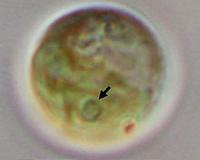 |
Seattle (UPI) Mar 31, 2011 New findings suggest that an oil-producing but inedible plant, Jatropha curcas, holds the future of renewable aviation fuel production in Latin America, Boeing said Thursday. Citing details of research into the plant's properties, Boeing said the Jatropha curcas, freely grown in tropical and subtropical conditions in Central and South America and other parts of the world, showed significant potential as a major future source for sustainable aviation fuel. Boeing has been looking into ways of producing "green" aviation fuels in response to global concerns over issues such as air travel contributing to climate change -- an implied threat to Boeing as a major manufacturer of aircraft. Biofuel research and production has also alarmed food lobbyists amid indiscriminate switchovers in some areas from food crops to crops producing feedstock for biofuels. The greatest factor in the defense of Jatropha-curcas is that it is poisonous, not edible, and easily grown without an adverse effect on food agriculture. The awkwardly named Jatropha curcas plant from the spurge family is commonly known as Barbados nut, purging nut, physic nut or JCL -- abbreviation of Jatropha curcas Linnaeus. The plant grows as a semi-evergreen shrub or small tree, reaching a height of up to 20 feet in right conditions and resistant to aridity and therefore suitable for arid areas in Central and South America. Boeing, like many other interested parties, is keen to develop a commercially viable, renewable source for aviation fuel so as not to have to face lobbyists and lawmakers who see reduced air travel as the best step forward. Boeing said the plant's seed contains 27-40 percent oil against an average of 34.4 that can be processed to produce a high-quality biodiesel fuel, usable in a standard diesel engine. Boeing said the research, conducted by Yale University's School of Environmental Studies, showed significant potential for sustainable aviation fuel based on the plant. If cultivated properly, Jatropha curcas can deliver strong environmental and socioeconomic benefits in Latin America and greenhouse gas reductions of up to 60 percent when compared to petroleum-based jet fuel, the research showed. The Yale study, conducted from 2008-10 and funded by Boeing, used sustainability criteria developed by the Roundtable on Sustainable Biofuels to assess actual farming conditions in Latin America. Unlike previous studies, which used theoretical inputs, the Yale team conducted extensive interviews with Jatropha farmers and used field measurements to develop the first comprehensive sustainability analysis of actual projects. Boeing is supporting a current Mexican government road map assessment on aviation biofuels and the new data will contribute to that effort. The peer-reviewed data are applicable to similar conditions in Mexico and also provides guidance to Brazilian efforts to develop a commercial aviation biofuels market. Studied Jatropha projects included actual small- to large-scale farms ranging from less than 10 hectares to more than several thousand hectares. Yale researchers used a robust analytical framework to compare land conditions before and after Jatropha cultivation. A key study finding identifies prior land use as the most important factor driving greenhouse gas benefits of a Jatropha jet fuel. If Jatropha is planted on land previously covered in forest, shrubs or native grasses, benefits may disappear altogether. If the crop is planted on land that was already cleared or degraded, then additional carbon is stored and emissions reductions can exceed the 60 percent baseline. The research highlights that developers should pay particular attention to prior land use when deciding where to locate Jatropha projects. A second important finding is that early Jatropha projects suffered from a lack of developed seed strains, which led to poor crop yields, the research showed. Advancing Jatropha seed technology through private and government research is critical and many Latin American countries are engaged in supporting such technology development. "Our team identified dozens of Jatropha farmers willing to participate in our research, despite some challenges many encountered with this new crop. For most, this was the first time anyone had studied their efforts," said Rob Bailis, assistant professor, Yale School of Forestry and Environmental Studies. "Working with them allowed us to collect detailed data needed to build a comprehensive picture including both positive and negative aspects. Research like this is vital to helping developers to deliver better social, environmental, and economic sustainability outcomes from Jatropha cultivation." "The invaluable insights provided by this study will help our airline customers to better understand the sustainability of this potential jet fuel source, while also providing solid scientific data to governments and environmental organizations throughout the region," said Boeing Commercial Airplanes Director of Environmental Strategy Michael Hurd. Sustainable biofuel development is a key element of aviation's strategy for lowering carbon emissions.
Share This Article With Planet Earth
Related Links Bio Fuel Technology and Application News
 More Efficient Ways To Harvest Sunlight To Make New Biofuels And Biomaterials
More Efficient Ways To Harvest Sunlight To Make New Biofuels And BiomaterialsLondon UK (SPX) Apr 01, 2011 Scientists in the United States and the United Kingdom have been awarded funding totaling more than $10.3 million to improve the process of biological photosynthesis. The U.S. National Science Foundation (NSF) and the U.K. Biotechnology and Biological Sciences Research Council (BBSRC) collaborated in issuing these jointly funded awards. Photosynthesis allows biological systems to use sunli ... read more |
|
| The content herein, unless otherwise known to be public domain, are Copyright 1995-2010 - SpaceDaily. AFP and UPI Wire Stories are copyright Agence France-Presse and United Press International. ESA Portal Reports are copyright European Space Agency. All NASA sourced material is public domain. Additional copyrights may apply in whole or part to other bona fide parties. Advertising does not imply endorsement,agreement or approval of any opinions, statements or information provided by SpaceDaily on any Web page published or hosted by SpaceDaily. Privacy Statement |